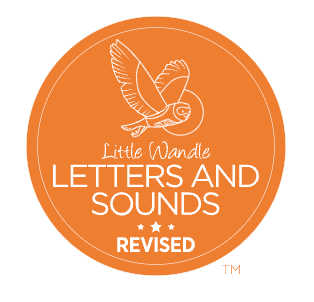British Values
At Grange C of E Primary School, we value the diversity of backgrounds of all pupils, families and wider school community.
The Department for Education defines British Values as follows:
- Respect for democracy and support or participation in the democratic process.
- Respect for the basis on which the law is made and applies in England.
- Support for equality of opportunity for all.
- Support and respect for the liberties of all within the law.
- Respect for and tolerance of different faiths and religious and other beliefs.
British Values: What are they?
Our school reflects British Values in all that we do. We aim to nurture our children on their journey through life so they can grow into safe, caring, democratic, responsible and tolerant citizens who make a positive difference to British society and to the world. We encourage our children to be unique, open-minded and independent individuals, respectful of themselves and of others in our school, our local community and the wider world.
At Grange C of E School, we actively promote British Values in the following ways:
Democracy
- All children are encouraged to debate topics of interest, express their views and make a meaningful contribution to the running of the school through the school council on matters that directly involve pupils.
- The principle of democracy is explored in the curriculum as well as during collective worship, assemblies and special days.
- Our Behaviour policy, which is reflected in the class charters in each class is discussed and agreed with pupils.
- Our pupils have had active involvement in the selection processes of house captains, school council members and in some cases appointment of staff.
Rule of Law
- Our school has a clear behaviour policy with sanctions and rewards. As well as this we teach about the ‘Golden Rule’ and being a ‘good neighbour’, this is integral to our learning and ethos every day.
- School rules and expectations are clear, fair and regularly promoted. Each class creates their own class charter based on the UN Convention of the Rights of the Child, which they agree to at the start of the year.
- Pupils are always supported to distinguish right from wrong, in the classroom, during collective worship and on the playground.
- Pupils are encouraged to respect the law understanding that it used to protect us and keep us safe.
Individual Liberty
- Within school, pupils are actively encouraged, and given the freedom to make choices, knowing that they are in a safe and supportive environment.
- Pupils are supported to develop their understanding that it is their responsibility as children of God to look after and care for His creation.
- Pupils are supported to develop their self-knowledge, self-esteem and self-confidence.
- Pupils are encouraged to take responsibility for their behaviour and the importance of making the right choices.
- Pupils are encouraged to know, understand and exercise their rights and personal freedoms and are advised how to exercise these safely, for example through our e-safety teaching and Personal, Social and Health Education (PSHE) lessons, through KIDSAFE and through learning about the UN Rights of the Child.
- Vulnerable pupils are protected and stereotypes challenged. A strong anti-bullying culture is embedded in the school and any form of bullying is challenged and addressed.
- Pupils have key roles and responsibilities in school e.g. Council Members, Y6 Classroom Monitors, Y5/6 Play Leaders.
Mutual Respect and Tolerance of Those with Different Faiths and Beliefs
- The pupils know and understand that it is expected that respect is shown to everyone, adults and children.
- Pupils are supported in the understanding that we are all God's children and are made in His image and likeness, all of equal value.
- Pupils are helped to acquire an understanding of, and respect for, their own and other cultures and ways of life.
- Staff and pupils are encouraged to challenge prejudicial or discriminatory behaviour.
- Links and visits are promoted with local faith communities and places of worship.
- Through the PSHE and RE curriculums pupils are encouraged to discuss and respect differences and similarities between people, such as of faith, ethnicity, disability, gender and differences of family situations.
- We offer a broad curriculum in which different religions are studied and respected and global dimension work embedded in many of our curriculum topics.









